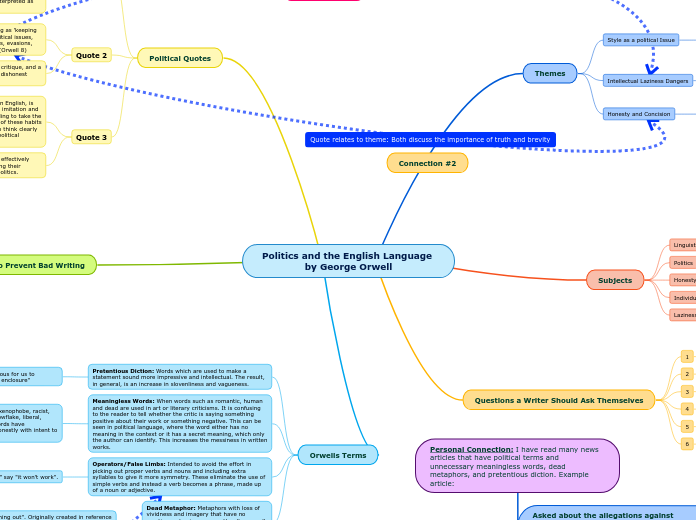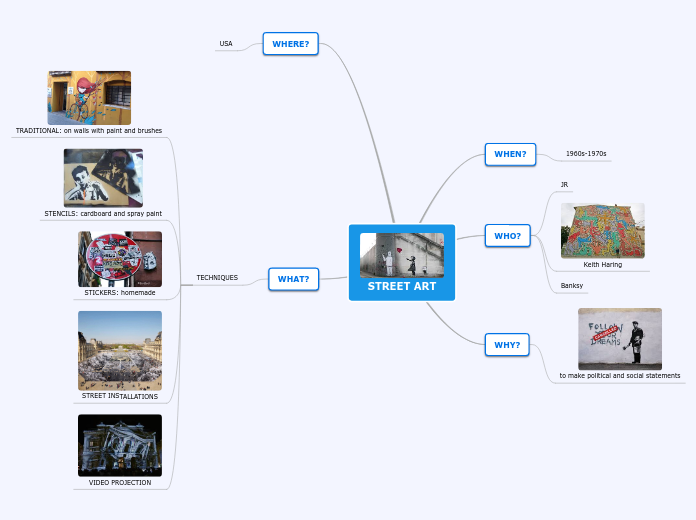realizată de Noor Natheir 4 ani în urmă
301
Politics and the English Language by George Orwell
George Orwell emphasizes the importance of style in writing, linking it directly to political influence. He argues that how something is said – including tone, syntax, and word choice –









